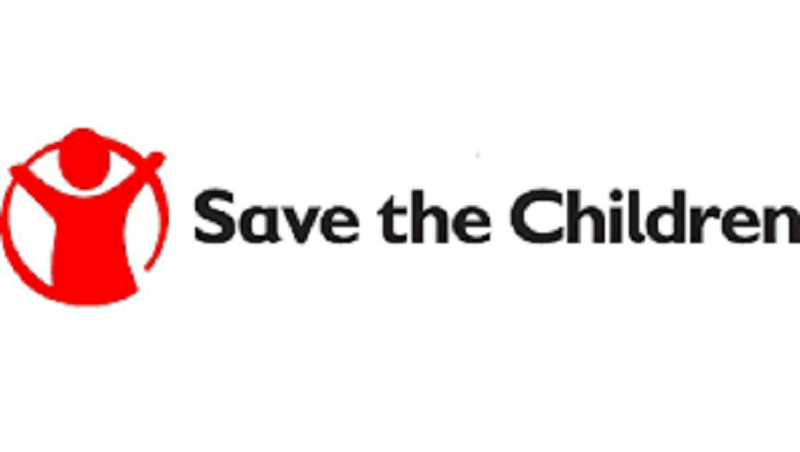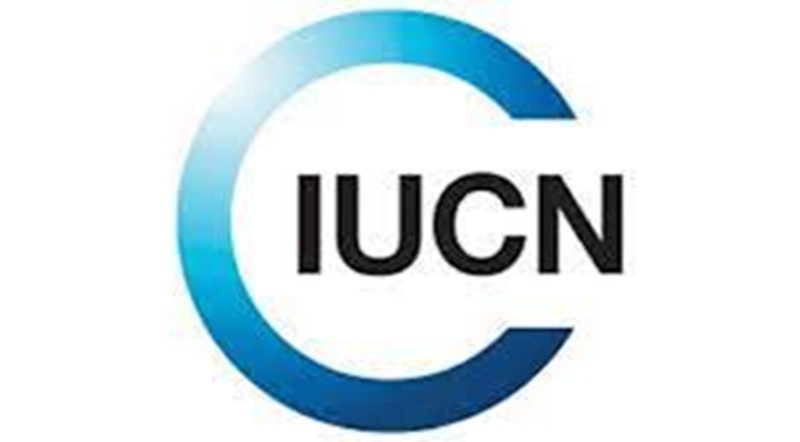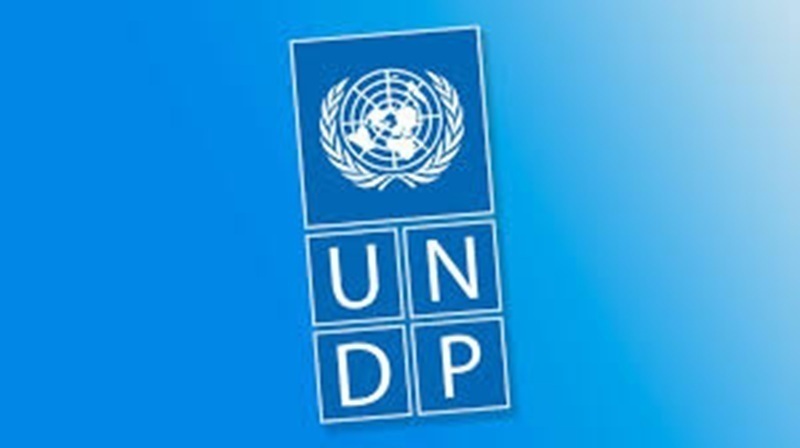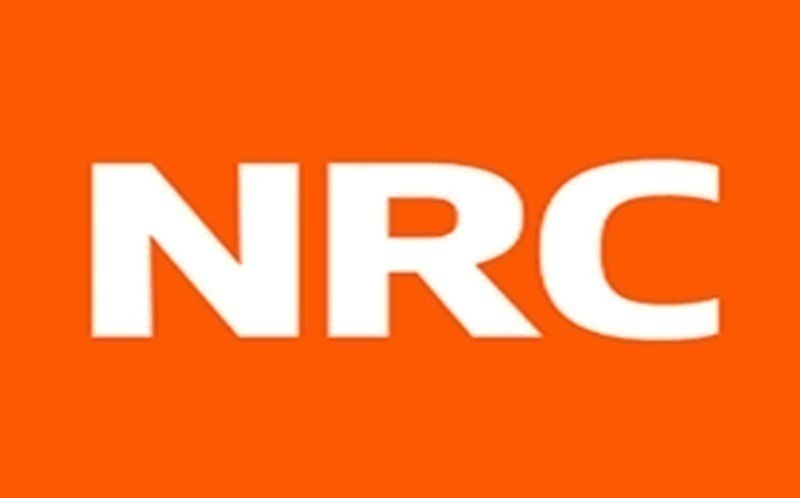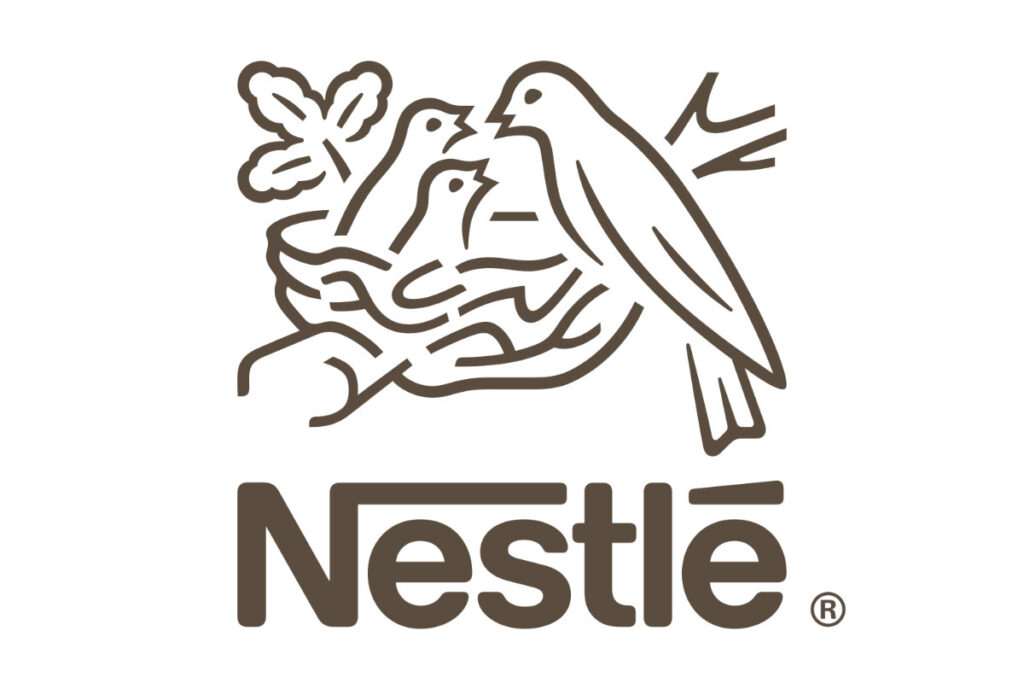POSTE 1 : CONSULTANT
CONSULTANCY FOR DEVELOPING AN ADVANCED EARLY WARNING SYSTEM (EWS) – (220008VN)
TERMS OF REFERENCE FOR
CONSULTANCY FOR DEVELOPING AN ADVANCED
EARLY WARNING SYSTEM (EWS) FOR SCI NIGERIA
BACKGROUND
Save the Children est la principale organisation indépendante pour les enfants dans le monde. Elle travaille au Nigeria depuis 2001 et fournit des programmes d’intervention humanitaire et de développement qui sauvent des vies. Notre vision est celle d’un monde dans lequel chaque enfant a droit à la survie, à la protection, au développement et à la participation. Nous travaillons pour inspirer des percées dans la façon dont le monde traite les enfants et pour obtenir des changements immédiats et durables dans leurs vies.
In Nigeria, Save the Children has supported over one million children and families in 2022 by providing child protection, livelihoods, education programming, and through the distribution of non-food items in both humanitarian and development programs. Save the Children International currently works in 14 states across Nigeria. As the current situation remains in flux, we may well scale up in new additional areas as required. The main program sectors that SCI Nigeria is working in are Child Protection, Nutrition, Education, Food Security, and Livelihood and WASH.
Save the Children aims to support a transformation in the aid system towards preventing and/or reducing the humanitarian impact of predictable crises on children and communities. This will include scaling up and integrating Anticipatory Action across operations and approaches; partnering strategically; contributing to learning and innovation on how Anticipatory Action can work best for children and influencing governments and donors to create an enabling environment for risk informed action.
While SCI is currently monitoring early warning indicators in its current areas of operation, SCI is currently exploring the feasibility of establishing an online early warning system database where volunteers from hard-to-reach areas in NE and NW Nigeria would be trained in monitoring key social, political, security, and conflict developments. This will also include monitoring natural crises such as floods and disease outbreaks.
Therefore, SCI Nigeria is seeking the services of a consultant(s)to develop and create an online system to manage early warning information of humanitarian crisis and disasters in Nigeria.
- Objective
The overall objective of the assignment is: to develop and create an online system to manage early warning information of humanitarian crisis and disasters in Nigeria.
- Deliverables and content
As a result of the engagement, SCI Nigeria will expect to receive the following deliverables from the consultant. These deliverables will be considered the measures of success for the assignment.
Development and creation of EWS:
- Lead the creation of the Early Warning System (web and mobile app), ensuring it meets Save the Children’s business requirement and design.
- Work closely with EWS PM and relevant staff to develop and validate the business requirements of EWS to ensure it meets the aims/ objectives of the project
- The indicators that the EWS platform would include would mainly focus on child rights violations, conflict escalation, natural disasters, and fundamentally the displacement and movement of those affected by the conflict.
- Develop harmonized system for warning and information dissemination
- Supports the management of the system after post go-live to deliver SCI’s objectives, making effective and efficient use of resources in the process.
- Producing detailed specifications and writing program codes.
- Promptly producing well-organized, optimized, and documented source code.
- Documentation of software tools and user manual
Testing and roll-out/ launch of EWS:
- Lead the testing of the system in a controlled situation before going live; creates testing plans for the system to ensure that they deliver the required results, reliably, safely and consistently.
- Presenting ideas for system improvements.
Training and capacity building:
- Assists in developing and managing the provision of training for staff, partners and volunteers in using the EWS
- Working closely with EWS to create system manuals and training documents, data sharing policies.
- Key stakeholders:
Internal: SCI Nigeria country office: The focal point for this consultancy will be SCI EWS Project Manager and Programme Operations Director. Other key SCI Nigeria staff that will provide guidance and information will be SCI Nigeria’s Country Director, Head of Safety and Security, PDQ Director and other SCI SMT members and Field Managers. SCI staff will facilitate logistical support; arrange/attend meetings; provide interpretation if necessary; and provide background information concerning SCI Nigeria’s capabilities in EWS; and give feedback on the feasibility/appropriateness of proposed strategies.
SCI Regional Office: Operations team. Regional Strategic Analyst.
External: Local authorities, UN agencies, INGOs, existing partners, potential partners, etc.
- Working Conditions:
SCI Nigeria will provide the consultants with transportation, per diem and office space while in Nigeria. SCI Nigeria will provide accommodations for overnight stays. SCI Nigeria will also introduce the consultants to the key contacts for this work. Extensive fieldwork will be required during the first few days. Security induction will be provided with clear instructions about the movements within northeast and northwest Nigeria.
- Tentative Time Frame:
This consultancy should not last more than 3 months. Start date: January 2023 arriving in Abuja, end date: 24th March 2023 departing from Abuja.
The consultants should have the following experience and skills:
- A minimum of 10 years of experience in the analysis and design of early warning systems.
- Extensive experience in designing early warning systems for INGOs
- Strong understanding, knowledge, and experience in conducting national early warning review, design and technical support.
- Ability to write and communicate complex messages and ideas clearly and effectively.
- Experience in working with NGO’s/INGOs/Donors and Government
- Understanding and commitment to Save the Children ’s vision, mission, and values
- Payment Details
- Payment will be in accordance with a detailed budget breakdown as submitted through the proposal, and invoices will be expected from the consultant prior to payment.
- Save the Children Nigeria will pay the consultant according to Save the Children ’s guidelines on procurement of services.
- A contract will be signed by the consultant before commencement of the action.
- The contract will detail terms and conditions of service, aspects on inputs and deliverables.
- Code of Conduct
Save the Children’s work is based on deeply held values and principles of child safeguarding and it is essential that our commitment to children’s rights and humanitarian principles is supported and demonstrated by all members of staff and other people working for and with Save the Children. Save the Children ‘s Code of Conduct sets out the standards which all staff members and consultants must adhere to. All consultants are bound by the principles and conditions of Save the Children ’s Code of Conduct and will need to sign it before commencing the assignment.
- Application requirements
Candidates interested in the position will be expected to provide the following documentation:
- Cover letter
- Detailed technical and financial proposal
- CVs of consultants with a minimum of 3 traceable and recent referees
- Company profile if relevant
- Initial work plan and availability of the consultant
- Sample of previous work done. This could be tools, guidelines, or approved assignment reports.
- Selection Criteria:
Essential Criteria: (Mandatory Requirement)
-
- Evidence of business registration from the country of residence is required for a firm.
- Evidence of Tax in country of residence should be provided.
- Conformity to SCI Mandatory Polices. (Child safeguarding, Human trafficking and modern slavery, Protection from sexual exploitation and abuse; Anti-harassment, intimidation, and bullying) Applicant should sign SCI bidder response form.
CAPABILITY (50)
- Extensive experience in designing early warning systems for INGOs/ NGOs/ Donors and Government (Sample of work on early warning should be provided)
- Strong understanding, knowledge, and experience in conducting national early warning review, design, and technical support.Evidence to be provided
- Experience in training on similar job (Evidence to be provided)
- Detailed CV of the proposed team (Evidence to be provided,
- Interview: Bidder demonstrates understanding of the required services during the interview.
- SUSTANABILITY (10): The bidder demonstrates experience and understanding of local context and community- Bidder demonstrates a strong understanding of local context and community. Bidder should provide evidence in whatever form to proof this.
- FINANCIAL 40 Marks: This entails financial estimation of the bidder for the consultancy.
- ELIGIBILITY TO BE BID AND SUBMISSION DEADLINE: This consultancy is open to both individuals and firms to participate, and all proposals must be submitted to [email protected]on or before 21st of December 2022.
Note: Kindly reference the RFP number below as the email subject:
RFP220769 (CONSULTANCY FOR DEVELOPING AN ADVANCED EARLY WARNING SYSTEM (EWS) FOR SCI NIGERIA)
POSTE 2 : CONSULTANT COMMUNITY MAPPING AND SITUATIONAL ASSESSMENT IN JIGAWA, KADUNA & KANO STATES – (220008VQ)
CONSULTANCY – COMMUNITY MAPPING & SITUATIONAL ASSESSMENT IN EITHER JIGAWA, KADUNA & KANO STATES
Terms of Reference
BACKGROUND
- Organizational background
Save the Children International (SCI) is the leading global independent organization for children. SCI believes every child deserves a future. Around the world, we work every day to give children a healthy start in life, the opportunity to learn and protection from harm. SCI is doing this through investing in health and nutrition, education, hunger and livelihoods, child rights governance and child protection. We work closely with partners to develop sustainable, replicable solutions to ensure that children receive decent necessities of life. Our education programmes currently support almost 1 million children to access safe, quality and protective learning opportunities while strengthening education systems at federal, state and LGA levels and working with communities to support learning.
Our vision: A world in which every child attains the right to survival, protection development and participation.
Our mission: To inspire breakthroughs in the way the world treats children and to achieve immediate and lasting change in their lives.
Our values: Accountability, ambition, collaboration, creativity, and integrity.
We are committed to ensuring our resources are used as efficiently as possible, to focus them on achieving maximum impact for children.
-
- Description of project/programme
The Partnership for Learning for All (PLANE) is an FCDO Funded Project which consists of 3 windows namely: improvements in the foundational systems (Window 1); specific support to children in conflict environments (Window 2); and communities supporting children learning (Window 3). It is expected that at impact level, PLANE will contribute to ‘More children and young people acquire basic skills and transition to more productive life opportunities”
PLANE Window 3 is a 4-year project which focuses on community support to learning and is implemented by Save the Children International (SCI) and its partners in Jigawa, Kaduna and Kano (JKK) states. Across the 3 JKK states, the project will work with existing community structures such as the School Based Management Committees (SBMCs), Ward Development Committees (WDCs), women and men’s groups, disabilities groups, child protection committees, children, etc to engage local communities using SC’s flagship Community Action Cycle (CAC) approach. The project aims to deliver an integrated programme aimed at mobilizing communities to support children to access education and derive the maximum benefit from the educational opportunities available to them. In the long run, the PLANE Window 3 project will improve/build foundational skills of marginalised children (particularly girls) through community learning initiatives and reduce demand-side barriers to education to enable and improve learning for marginalised children (particularly for girls) by addressing social norms and harmful practices. This will be done through two key intermediate outcomes:
- Girls and boys including children living with disability complete community-based learning interventions and have increased well-being and life skills
- Community members are engaged in collective action to create an enabling environment which supports girls’ and boys’ rights and to demand for safe, quality and inclusive education
The project has the following Interventions
- Literacy Boost and Numeracy Boost camps – Community led sessions outside of school to help children between 6-9years (G1-3) both in school and out of school to improve their reading and numeracy skills
- Catch Up Clubs – Community led sessions outside of school to help in school and out of school children between ages 9-13 years (G4-6) both in school and out of school to improve their reading skills.
- Home based learning – Remote/home-based learning for children living in insecure communities.
- Very Young Adolescent clubs – Safe spaces for girls and boys attending catch up clubs to improve their life skills and discuss issues that affect them.
- Social Behaviour change – Implementing the Community Action Cycle approach to mobilise and strengthen community capacity and foster individual and collective action
- Social Behavioural Change Communication – Mobilising various strategies to communicate key information related to gender transformative change as they relate to access to education
- Dedicated activities for children with disabilities – Advocacy activities, support to enroll and stay in the education system
- Household economic strengthening – Setting up Village Savings and Loans Associations (VSLA) – a economic empowerment strategy for vulnerable families to support children’s education continuity.
- Community Case Management – A community-led service for girls and boys with protection concerns that links with the government Social worker system.
PLANE Window 3 project is currently in its inception phase and as part of the activities to ensure smooth take off the project, the organisation is commissioning a community mapping & situational analysis exercise in selected communities in the three implementation states.
- Rationale for the activity/assignment
This project will use evidence-based approaches to enable and increase community-based support for learning for 200,000 marginalised children, especially girls and children with disabilities, through building foundational competencies, fostering empowerment, strengthening protection systems and supporting families to overcome demand-side barriers to productive education opportunities. As part of its take off activities and for effective project delivery, the project intends to collaborate with the LGA level government stakeholders to agree on criteria for school community mapping/selection. The mapping activities will also involve mapping of structures and mechanisms existing in the community that will aid or affect the project delivery. To this end, the project is commissioning a community mapping assessment & situational analysis to understand the communities and the existing structures that may influence the delivery and the impact of the PLANE Window 3 project in the three states.
- Objectives
The overarching objective of this assignment is to gather an indepth understanding of the Window 3 PLANE communities we will be working with. The exercise will provide information to understand both the people (communities) and the existing structures that can impact the delivery of the planned education interventions. Specifically, the assignment will achieve the following objectives among others:
The specific objectives of this exercise are to:
- Understand the current situation and power dynamics in supported communities with respect to community support to learning. This will include:
- Identify power relations, community leadership, existing structures and actors, formal and informal groups, key influencers, community dynamics in supported communities and how these may influence community support to learning
- Conduct disability as well as gender analysis in supported communities
- Identify community assets and resources (including spaces) that can be leveraged within the community interventions
- Understand factors that influence conflict in the communities and well as review of civil conflict in these communities in the past 10 years
- Understand factors influencing the problem of out-of-school children in the communities
- Map out & locate (using GIS coordinates) existing civil organisations, structures and service providers in and close to the communities that provide education, health, protection, and social protection etc services, especially for children, including those with disabilities
- Understand the situation of the hub-schools and factors that may affect enrolment and attendance including for children living with disabilities
- Identify existing and/or ongoing economic activities in the target locations
Methodology
Three individual consultants or organizations (one for each state) will be selected for the assignment. Each consultant/ organization is expected to come up with a detailed methodology for the assignment in the inception report. However, the assessment is expected to mainly be qualitative data collection approach with some quantitative data. The methodology should detail target participants, type of data collection methods and the number of sessions per location segregated by participants’ characteristics. A detailed review of secondary data that provides details of the situation in the states, LGAs and communities is expected
The consultant should note the following when planning the methodology:
- A desk review of relevant documents to provide an understanding of the project and contextual analysis of the existing systems. All necessary data quality control measures should be put in place during the fieldwork, ensuring data protection during collection, storage, transfer, analysis, and reporting.
- A risk assessment will be conducted that includes any risks related to children, adolescents, and adults’ participation in this study.
- A referral mechanism will be in place in case any child safeguarding or protection issues arise during the study.
- Informed consent is obtained from all respondents participating in the study.
- Scope
The scope of the assignment spans across 3 states in Northwest geopolitical zone in Nigeria. The consultant will visit the implementation states for Windows 3 PLANE project, engage with the community participants to gather their views/opinions to understand the communities (people) and the existing structures that can impact the delivery of the planned education interventions. The consultant must ensure gender inclusion including people living with disability within the communities. Below are the selected LGA per state
Jigawa – Malam Madori LGA, Babura LGA
Kaduna – Soba LGA, Kauru LGA
Kano – Minjibir LGA, Makoda LGA, Ajingi LGA
The community mapping & situational analysis is expected to cover all selected hub school catchment communities (8 per LGA). By ‘hub school community’ we mean all the communities who access a single primary school or live within 3km walking distance from it. Therefore, the mapping is expected to cover:
Jigawa – 16 communities
Kaduna – 16 communities
Kano – 24 communities
- Specific tasks
The selected individual shall:
- Develop the inception report (Protocol) which will include an interpretation of the study design & methodologies, detailed work plan and financial proposal (Consultant daily rate for the period of the assignment).
- Conduct a desk review of the relevant program documents.
- Develop appropriate data collection tools and guides
- Hold preliminary discussions with project leads, MEAL team and relevant key stakeholders.
- Train facilitators, interviewers and supervisors, ensure the quality of data.
- Undertake consultations with key stakeholders and conduct field data collection, Focus group discussions, Key informant interviews, etc.
- Process and analyze the data, write and submit a draft report of the assessment
- Submit transcripts & data sets
- Present the draft report of the findings to SCI for comments and feedbacks.
- Revise and submit final report including recommendations
- Deliverables
- Inception report (Protocol)
- Collated Mapping outline
- Data collection tools & guides
- Transcipts and cleaned data sets
- Draft report
- Final report
- Timing of consultancy
- The proposed duration for this consultancy is 25 working days for Jigawa and Kaduna state and 30 working days for Kano from mid-January to February 2023. The individual expressing interest shall provide the detailed plan of activities. The 3 selected consultants (1 for each state) will work concurrently within the stipulated period
- Consultant/Firm Specifications required
- Consultant must have five years and above experience in conducting qualitative studies and analysis and, experienced in community mapping/situational analysis for programmes especially in education context (with evidence/reference)
- Must possess high level of skill in assessment report writing
- He/she should have experience working in and understanding the selected state. Note that consultant can only select one state
- He/she must have at least Master’s degree in education, or relevant social sciences and development studies. Details of experience providing above mentioned services and references
- Pricing plans for all services (financial proposal). Please note that the consultant shall submit their financial proposal for their consultancy fees only (rate per day) for the period. SCI will cover other costs including travel, enumerators fees, and logistics based on SCI rates. SCI will also be responsible for the recruitment of the enumerators for the assignment in each of the locations.
- Specify if any part of their services is subcontracted to other parties, and if yes list the other parties
For firms:
In addition to those information requested above , the bidding organizations would be required to submit evidence of statutory records and that the company is legally registered with the government authorities.
- Ethics Approval and Disclosure/Ownership of Information
The Consultant must obtain and adhere to ethical approval processes of Nigeria before commencement of the activity. Full ethical approval must be obtained before the activity commences, if required. All ownership and copyright for the information collected is held by the Project and Save the Children Nigeria. The Consultant shall, during and after the effective period of the contract, treat as confidential and not divulge, unless authorized in writing by Save the Children Nigeria, any information obtained during the performance of the assignment. Information will be made available for the consultants on a need-to-know basis.
- Payment Schedule
Payment to the consultant shall be done in accordance with normal procedures of Save the Children. In principle however, consultant fees will be paid upon the satisfactory report of performance.
The payment schedule will be as follows:
- First payment: after successful submission and approval of the inception report, data collection tools, workplan, travel schedule and story bud: will be paid 30% of total payment.
- Second payment: upon successful collection of interviews across the identified states and first draft of the report, will be paid 40% of total payment.
- Third and final payment: upon submission of the final copy of the assessment report and all other deliverables to Save the Children, will be paid 30% of the total payment.
- SCI reserves the right to withhold payment if deliverables do not meet the requirements outlined in this Terms of Reference.
- Evaluation criteria
There will be one set of evaluation criteria for individual consultants. For this assignment SCI will apply first the Essential criteria and then Capability criteria. The essential criteria will be evaluated using a simple Yes/No scoring method. A Yes will be awarded if the consultant provides evidence of the requirement.
Only consultants that score all ‘Yes’ under the essential criteria evaluation will progress to the capability evaluation stage.
The pass mark for the capability criteria is 80 points out of 100 points.
Consultants who respond to the tender must meet the following criteria:
Bid submission deadline; on or before 10:00am 12 -12- 2022
Kindly send your response to – [email protected].

